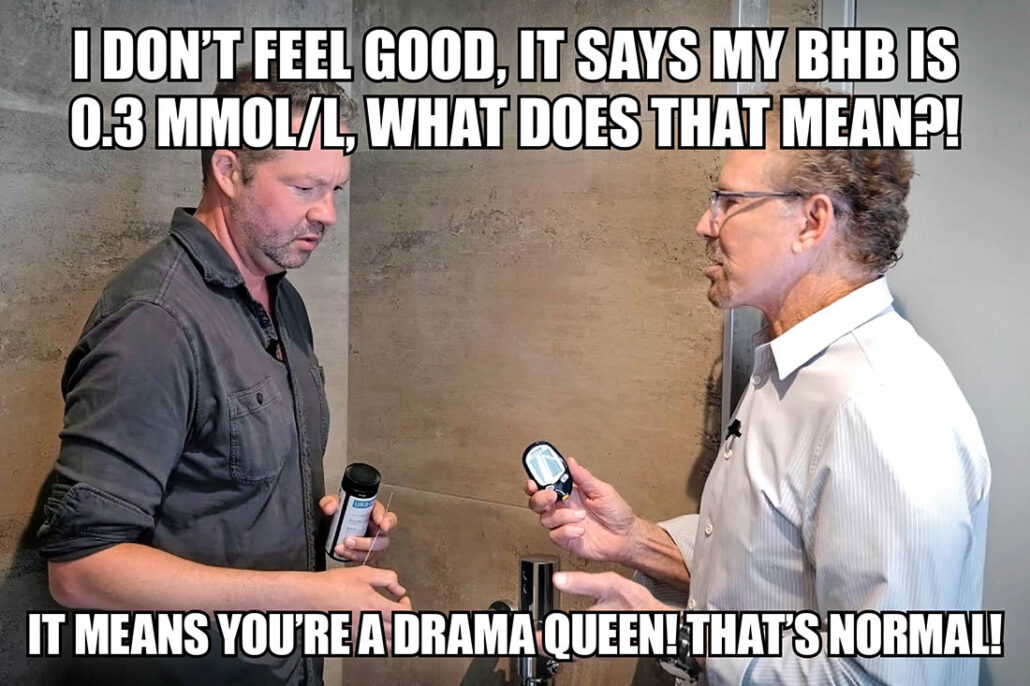Your Patient-Provider Communication Doesn't Have to Be a Mystery!
Patients and providers want the same thing: better healthcare outcomes! But frustrations and miscommunication get in the way. Whether you're a patient feeling treated 'like a number' or a provider frustrated that patients 'don't listen to my advice,' this open conversation helps both sides understand each other.
In this video, you will learn about the following:
- The top 5 things that drive patients crazy (like being treated as “just a number” or only as an A1c).
- The top 5 things that drive doctors crazy (like patients “lying” about glucose numbers or stopping medications).
- Why do both sides end up feeling like the other doesn’t care, when what they both truly want is better health outcomes?
- The impact of the broken healthcare system on both patients and providers.
- Actionable tips for patients to get the most out of their visit (like bringing 2-3 key questions).
- Proven tips for providers to build trust with patients.
- How to break the cycle of mutual frustration and build respectful, great communication.
On the Way to Better Diabetes Care!
Our goal is to help you cut through the frustration, understand what's really happening on both sides of the exam room, and feel empowered to take the next step.
A 15-minute appointment puts pressure on everyone. Patients are managing diabetes day-to-day, while providers are working within a crazy fragmented healthcare system. It’s easy for both sides to get burned out and feel like the other doesn’t care – yet both sides are seeking better health outcomes.
Understanding the Frustration: What the Complaints Really Mean
Let's break down the key parts of the patient-provider disconnect. No complex science, just the straight facts you need to know.
Patient Complaint
The "I'm Just a Number" Feeling
This one really hurts patients’ feelings.
It makes them feel unseen, unheard, and judged only by their A1C. The goal is to reduce this feeling and start to build trust by showing empathy, focusing on “good days,” and acknowledging that the effort they are putting in is actually leading them to better control.
Provider Complaint
The "They're Lying to Me" Feeling
This is one of the common frustrations of providers. If the patient is not up front with honest information, the provider feels stuck in not being able to provide a practical solution. It’s less about focusing on the problem and more about using the problem to inform a solution.
The Core Theme
The "They Don't Care" Feeling
This is a mutual feeling of disrespect and burnout.
For people with diabetes and their doctors, this high level of frustration is a major red flag for burnout and poor health outcomes. Getting this feeling under control is one of the most powerful things you can do TOGETHER for a better health outcome!
Improving Your Appointments: A Practical Communication Guide
Ready to take action? Here are simple, powerful tips you can start using today to improve your doctor-patient communication levels.
Patients, come to your appointments prepared. Remember to bring important information, whether it’s your glucose numbers, CGM data, or lab results.
Write a short list of questions—not 15, just two or three key questions.
Show the paper with your questions when your doctor first walks in the room. This makes you an active, engaged participant.
Be honest. Don’t make up numbers to avoid a lecture. Real data, even if it’s “bad,” is the only way to get real help.
Show empathy. Acknowledge what it’s like to live with diabetes 24/7 and the pressures the patient is under.
Find the “congratulations part” of the visit. Focus on good days and good numbers, not just problems. Congratulate them for just showing up.
No shame, no blame. Avoid negative labels like “non-compliant.” This language is counter-productive and breaks trust.
Acknowledge the system. Recognize the time constraints (15-minute visits) and pressures that both sides are under.
When Communication Isn't Enough: Finding Common Ground
Sometimes, simple tips alone don't get the relationship where it needs to be—and that's okay. Understanding the core issue is a crucial tool. Here are the realities both sides are facing.
The 15-Minute Visit in Clinic
Patients don’t often realize that providers are expected to address diabetes and every other health concern in just 15-minute appointments, while also keeping up with electronic charting. That’s why visits can feel rushed, or why providers seem ready to head out the door.
The 24/7/365 Disease
Providers often don’t truly grasp what it’s like to live with diabetes day-in and day-out, which is why a patient might feel “unmotivated” or “lie” about numbers to avoid a lecture. It’s often burnout, not a lack of caring.
The “Unmotivated” Patient Myth
Providers need to remember that they will never meet a person with diabetes who is unmotivated to live a long and healthy life. Their “non-compliance” is often a sign of burnout, cost, or misunderstanding, not a character flaw.
The Medication Disconnect
Both sides complain the other doesn’t know their medication list. This is a shared responsibility. Patients should bring a list, and providers should take the time to review it.
The “Lose Weight” Command
Providers must stop telling patients to lose weight as if it’s a new idea. It’s often shaming and unhelpful. Instead, offer concrete, compassionate solutions or resources.
Your Docs Who Get It
Dr. Steve Edelman and Dr. Bill Polonsky have been facilitating open and honest conversations between patients and providers for 20 years.
Together, they’ve led over 100 “Making the Connection” workshops, bringing people with diabetes and healthcare professionals (as part of CME programs) into the same room to “duke it out.”
Dr. Bill Polonsky is a clinical psychologist specializing in the behavioral and emotional issues of diabetes and the founder of the Behavioral Diabetes Institute. Their shared goal is simple: to help healthcare providers get a better understanding of their patients, and vice versa.



Continue Exploring Diabetes with TCOYD
Question: What's the biggest frustration you have during an appointment? Let us know in the comments below!
© 2025 Taking Control Of Your Diabetes® | Taking Control Of Your Diabetes® is a 501(c)(3) Nonprofit Charitable Educational Organization, Edutaining the Diabetes Community Since 1995.
**We love sharing the latest and greatest in diabetes education, but we are not your doctors! All of the information on our website, in our videos, on our podcasts, on our social media platforms, and in any other current or future communication method is for the purposes of general education only. Please do not post personal medical information on this platform. Always consult with your medical team for testing, diagnosis, treatment, and medical advice before making any changes to your healthcare. AND if you think you are having a medical emergency, call 911**



Leave a Reply